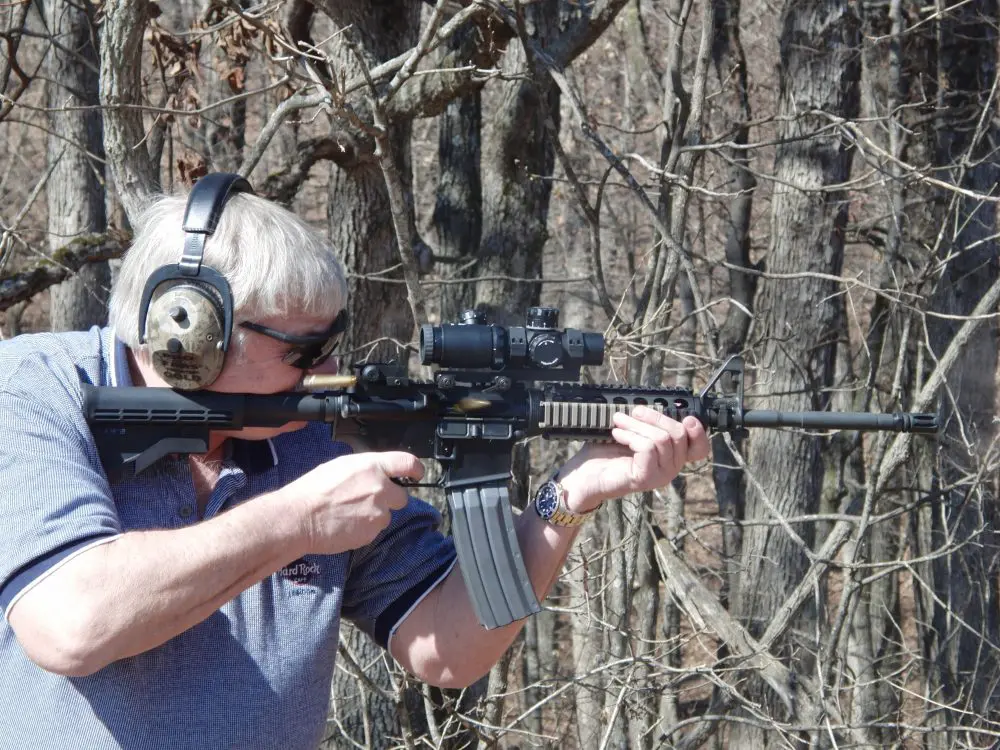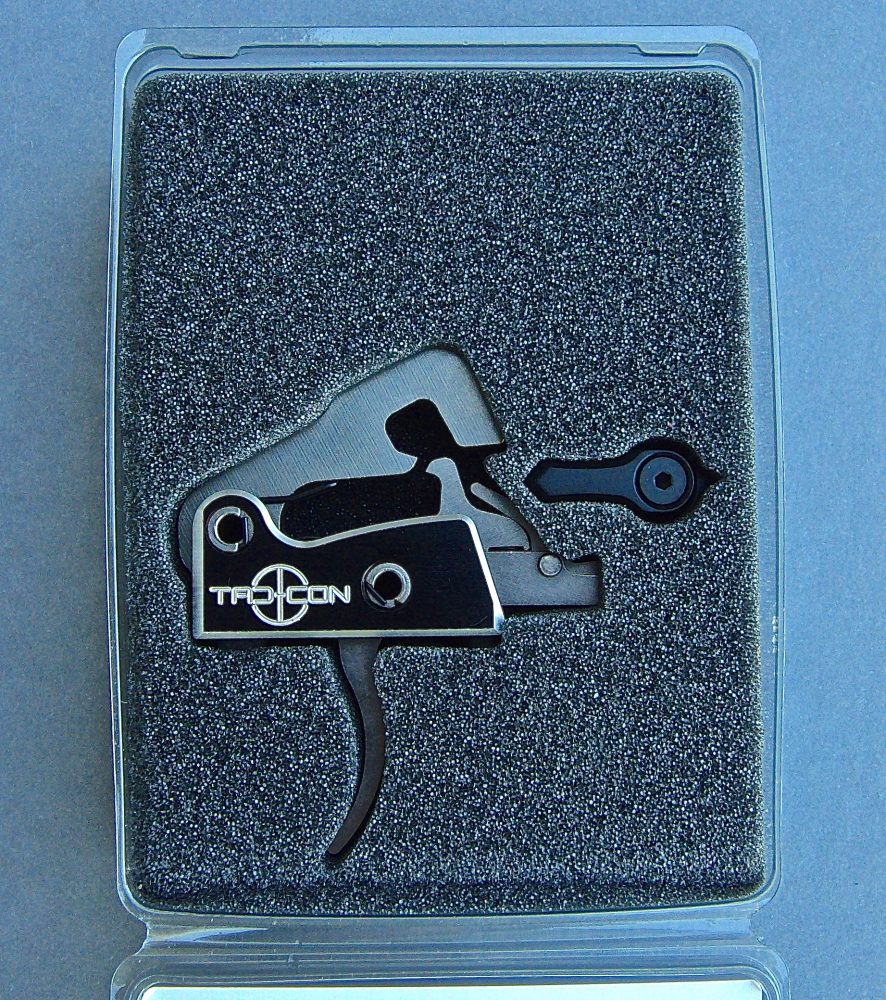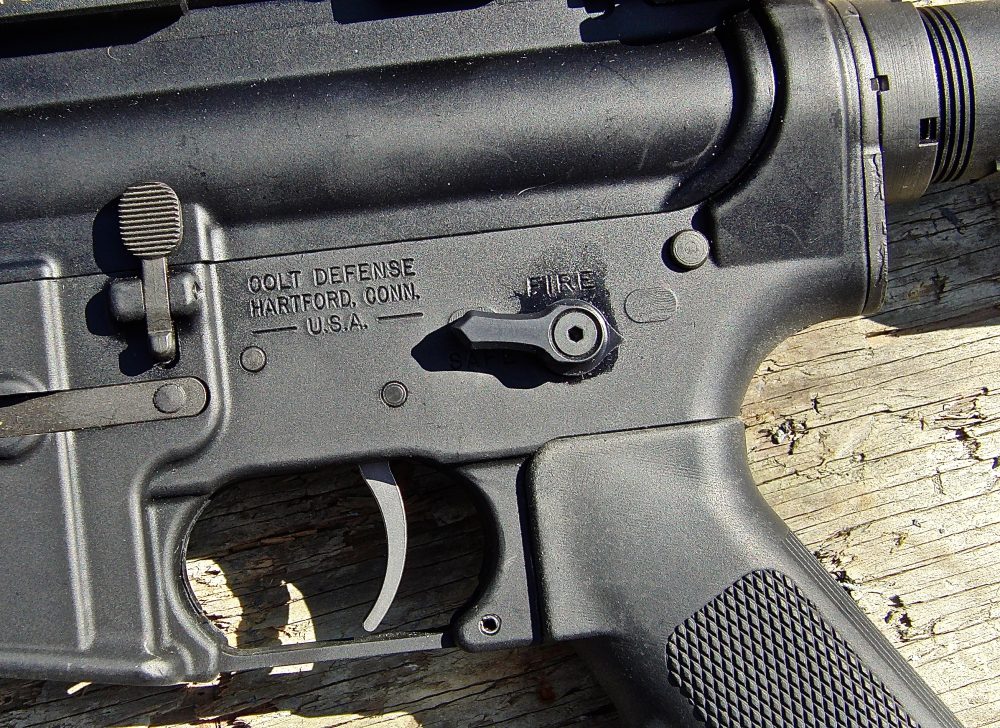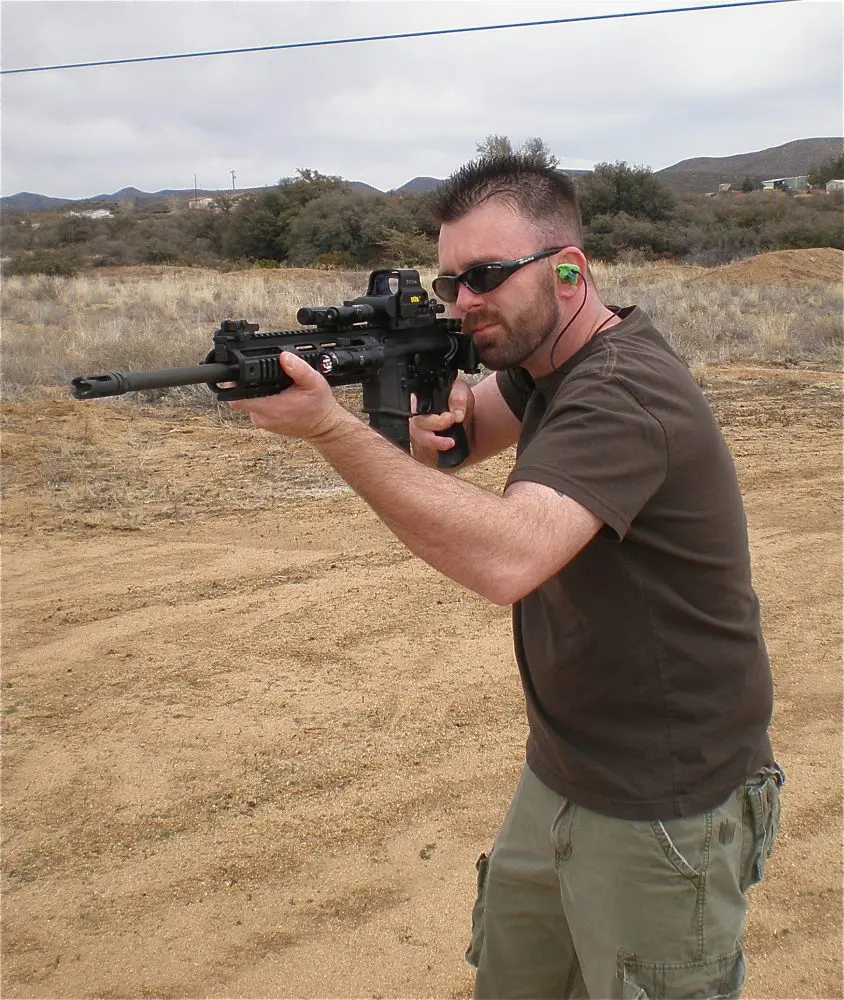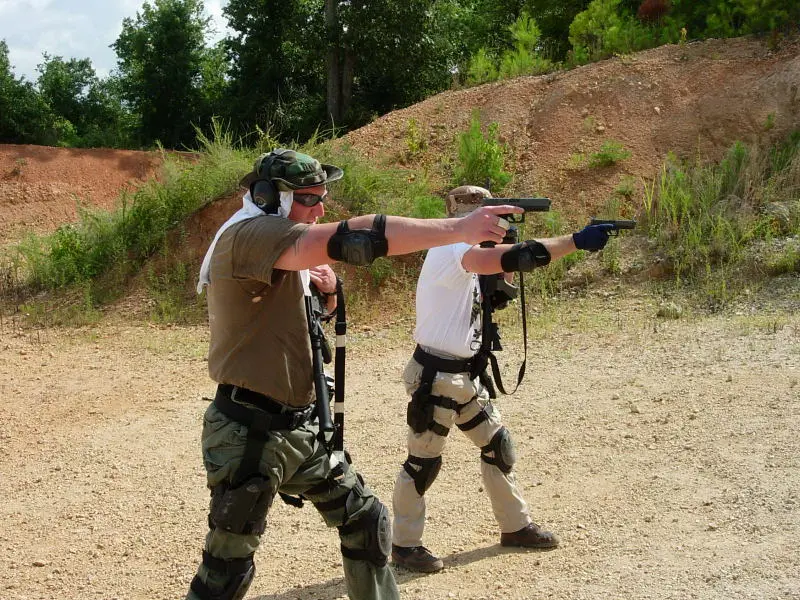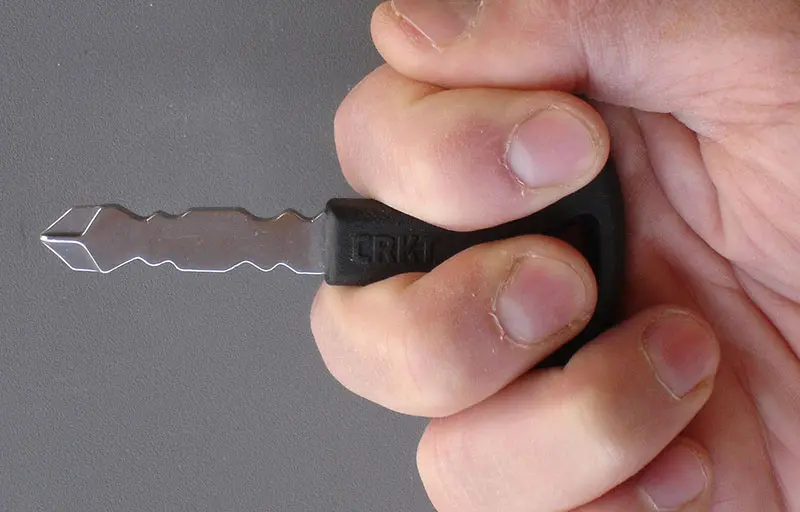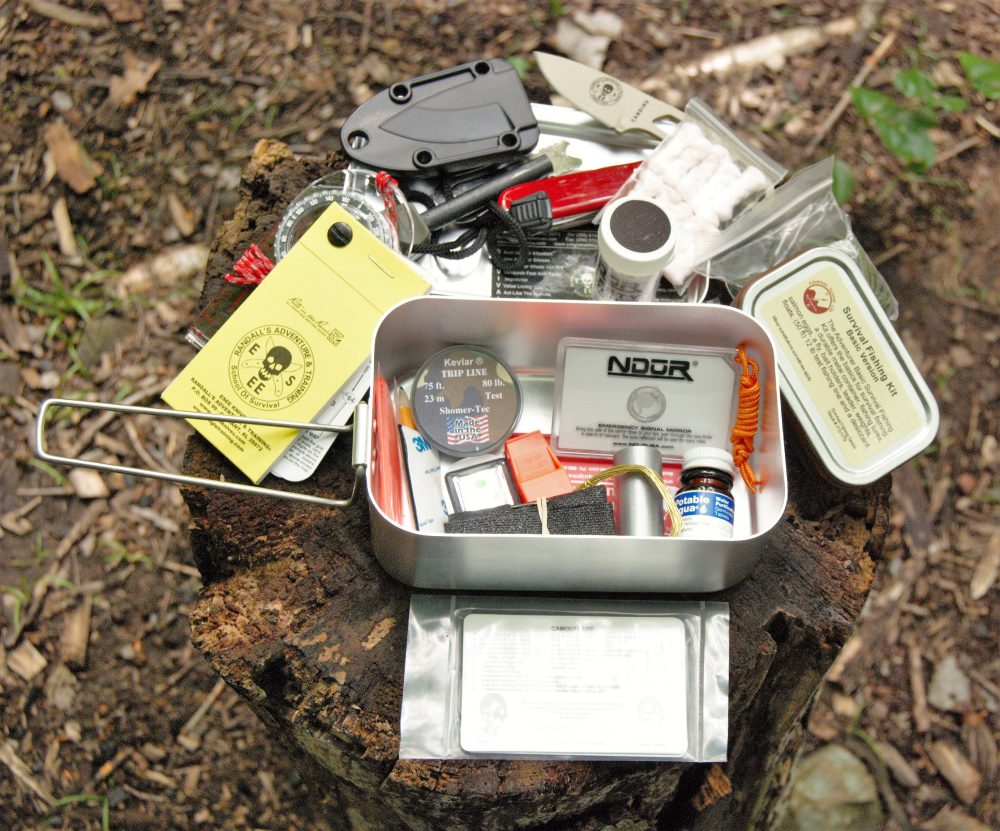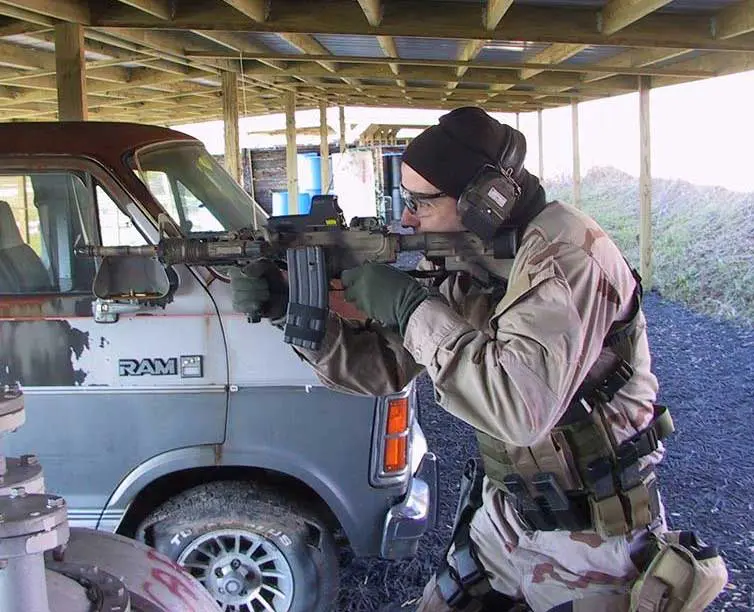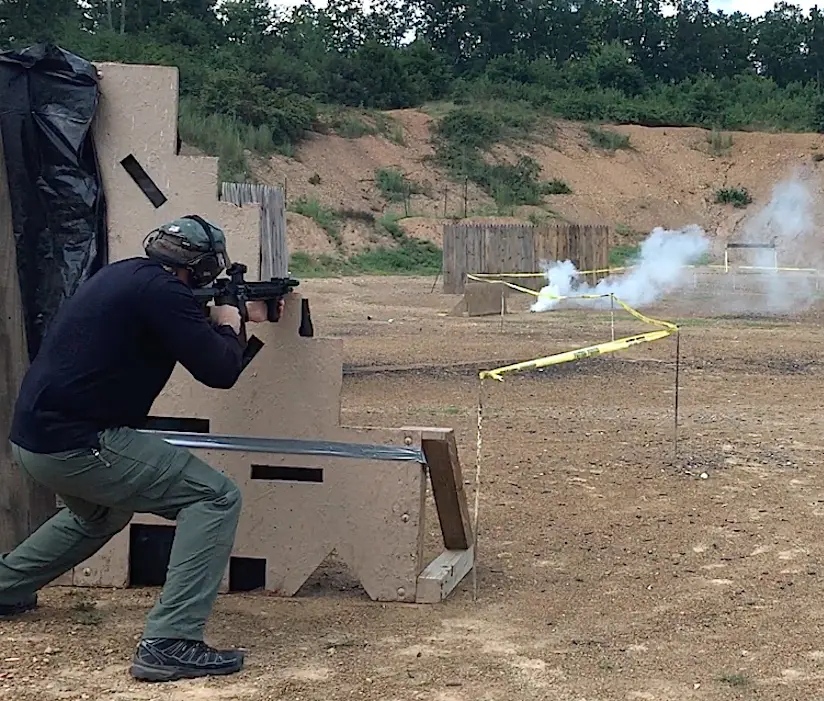When firing semi-auto M4 carbines, I’m sure many readers have thought it would be nice to have select-fire capability. However, the cost of a transferable M16/M4 combined with red tape discourages most.
I get that, but I normally find almost anything that can be accomplished with a select-fire M4 can be accomplished with a semi-auto one. Full-auto capability is most valuable in belt-fed area fire weapons. Don’t get me wrong: if I could walk into my local gun shop and purchase a 14.5-inch barreled select-fire M4 by just filling out a 4473, I probably would.
As it stands, though, I’m happy to shoot select-fire M4s if I’m training with a unit that has them, but normally shoot one of my semi-auto M4s with 16.25-inch barrel.
Thompson fires Colt M4A1 set on Third Mode while moving among plates.
I was intrigued when I read about the Tac-ConTM 3MR Trigger System, which allows a semi-auto AR-15/M4 to be fired very fast while remaining entirely BATFE compliant. But that wasn’t what first attracted me to the Tac-Con trigger. I use my Colt M4A1 carbine a lot, but have found the trigger pull is a little heavy for precision work. I noticed the Tac-Con trigger has a 4.5-pound trigger pull in semi-auto and decided that would be just about right.
I was also interested in the Third Mode setting for the Tac-Con trigger, which has a positive reset that remains BATFE compliant but reduces the time between shots dramatically. This Third Mode also has a 4.5-pound trigger pull.
A copy of the BATFE letter approving the Tac-Con Trigger System can be found on Tactical Fire Control, Inc.’s website, where you can read it if you want to know all the technical details. Basically, the drop-in Tac-Con trigger’s positive reset is achieved by transferring force from the bolt carrier through the trigger assembly to assist the trigger back onto the front sear, thus giving the carbine the fastest reset possible.
Tac-Con trigger and selector in their padded container
The Tac-Con is quite useful for those who use the AR-15/M4 in competition, as either the standard semi-auto or Third Mode trigger pull allows good shot placement, and the quick reset on the Third Mode permits fast repeat shots with good trigger control in any type of timed shooting event.
The Tac-Con 3MR trigger comes packed in a container along with a pocket-sized copy of the BATFE letter approving it. But when I opened the box, I couldn’t find any installation instructions. When I checked with Tactical Fire Control, Inc., I was told that an instructional video will be up on their website soon.
My friend Ken Choate at C&S Metall-Werkes Ltd. works on AR-15s/M4s all the time, so I decided to have him install the Tac-Con, especially since he wanted to examine it in case customers asked him about it. I observed closely as he did the switch-out of the trigger that was in my Colt and installed the Tac-Con. Here are a few hints based on what we learned:
First, it is necessary to remove the pistol grip to remove the spring and detent for the safety/selector for the standard trigger.
Second, the Tac-Con selector switch has to go in before the trigger assembly.
Third, pins for the Tac-Con should be inserted from the right side of the receiver with the grooves in front.
I had planned to take the Colt out to try the Tac-Con the next weekend, but an ice storm turned the range I use into a skating rink. I finally got a chance to shoot the Tac-Con the next weekend and found it worked quite well.
Tac-Con’s selector set on position for Third Mode
I began by using the semi-auto mode to get used to the 4.5-pound trigger pull. I’d rate it as good as the triggers in a couple of custom ARs I shoot.
I then switched to the Third Mode and started a little slowly to get used to the trigger pull with the quick reset. After a few rounds to get the feel of the trigger, I began firing five-round strings, then ten-round strings. Once I got the rhythm of moving my finger quickly for each shot, I was firing pretty fast. The steady stream of brass cascading from a full-auto carbine wasn’t there, but there was a steady stream of empty brass in the air—five or more cases at a time.
In all, I fired about 200 rounds using the Tac-Con. The only problem wasn’t with the trigger, but with the 60-round SureFire magazine I was using. This magazine normally functions well even when held upside down and in full-auto weapons. But on this occasion, the follower stuck and required taking the magazine apart to fix it. I switched to 30-round magazines (with 28 rounds loaded) and kept firing.
The more I shot using the Third Mode, the better control I had of the trigger when operating it quickly. I also found that when shooting at plates, I could move among them, double tapping each one very quickly and accurately.
The cost of ammo kept me from shooting even more, but based on the shooting I did with the Tac-Con 3MR Trigger System, it works very well. It is an excellent aid to fast yet accurate shooting. The quality of the Tac-Con seems high as well.
I recommend that anyone installing a Tac-Con 3MR trigger carry a copy of the BATFE letter stating its legality with them, as the position of the selector for the Third Mode would appear to anyone not aware of the Tac-Con as the position for full auto.
Plan to pay for the engineering and development involved in the Tac-Con 3MR Trigger System, as the cost is $495.
SOURCE:
Tactical Fire Control, Inc.
www.tacconusa.com
